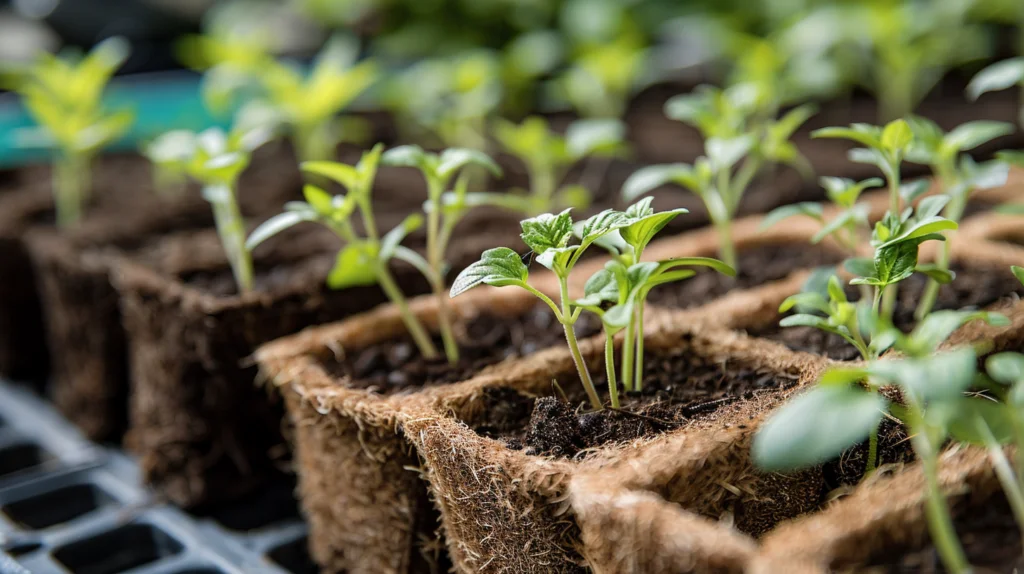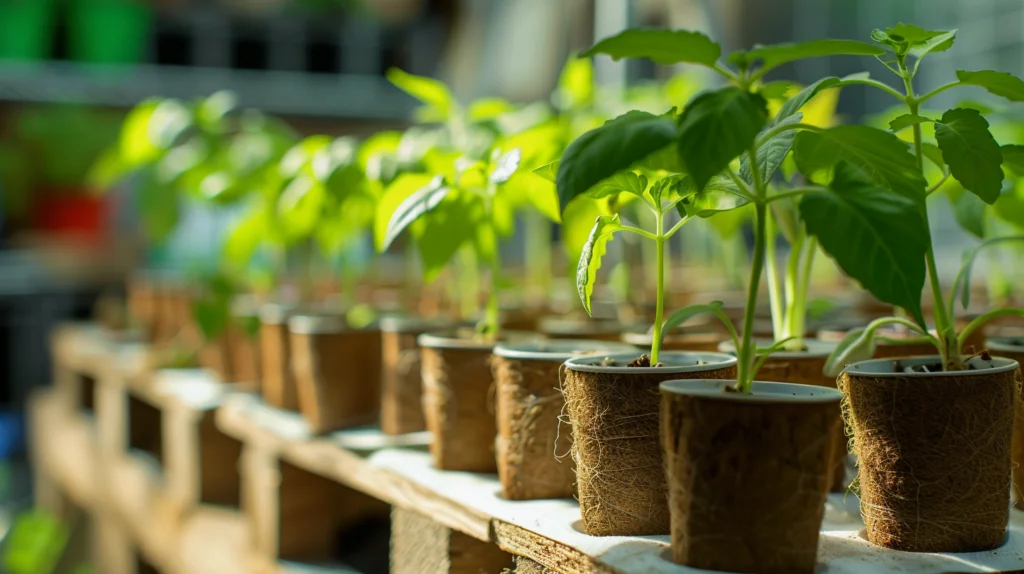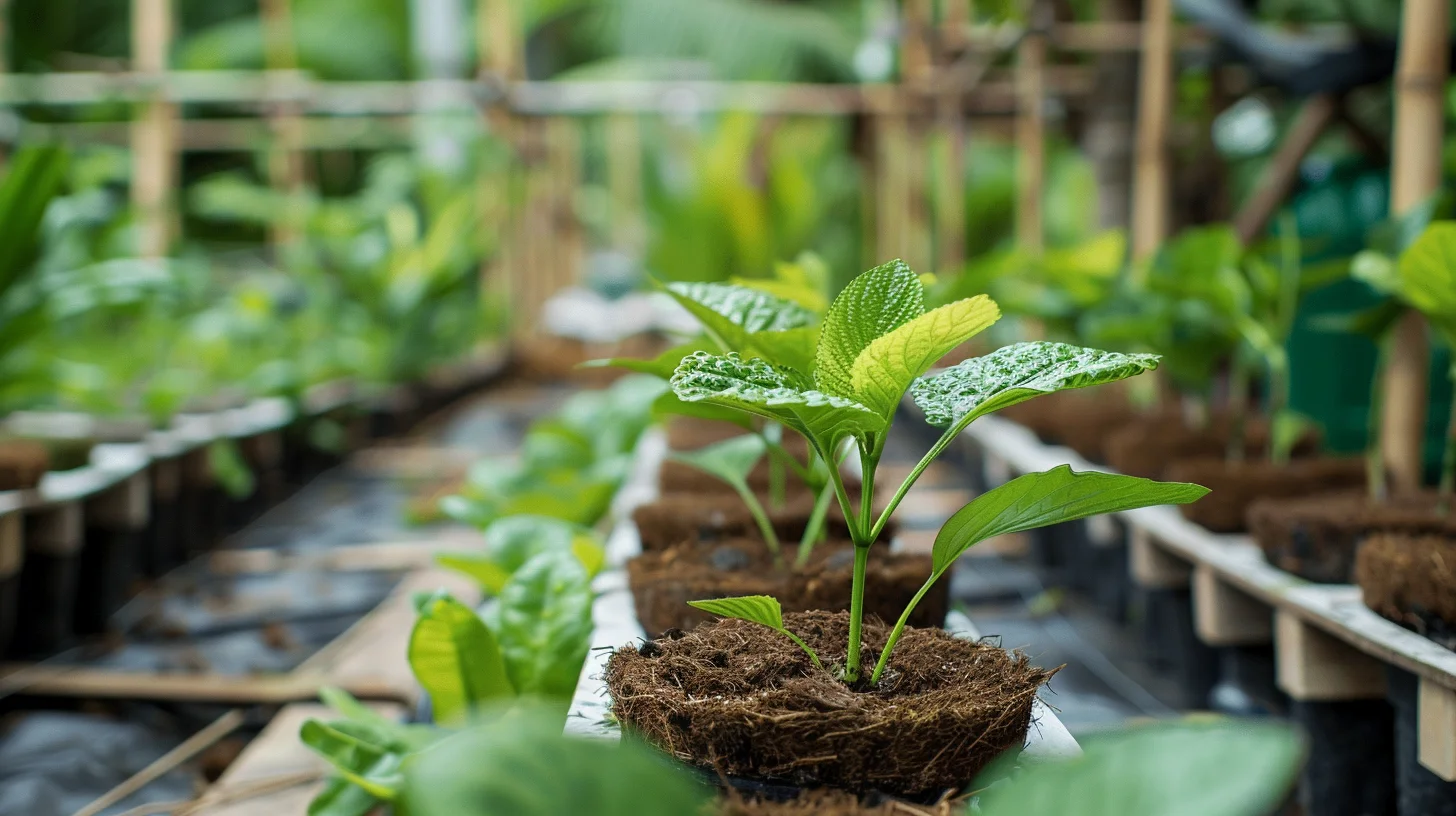Table of Contents
Hydroponics has revolutionized the way we grow plants, offering a soil-free alternative that maximizes efficiency and yield. Among the various growing media available, coco coir has emerged as a popular choice for hydroponic enthusiasts. But can you really use coco coir for hydroponics? The answer is a resounding yes! In this comprehensive guide, we’ll explore the ins and outs of using coco coir in hydroponic systems, its benefits, potential challenges, and how to make the most of this versatile growing medium.
What is Coco Coir?
Before diving into its hydroponic applications, let’s understand what coco coir actually is. Coco coir, also known as coconut fiber, is a natural byproduct of the coconut industry. It’s derived from the fibrous husk of coconuts and comes in various forms:
- Coco pith (or peat)
- Coco fibers
- Coco chips
Each of these forms has unique properties that contribute to its effectiveness as a hydroponic growing medium. Coco coir is prized for its excellent water retention capabilities, aeration properties, and sustainability.

Benefits of Using Coco Coir in Hydroponics
Using coco coir in hydroponics offers numerous advantages that make it a favorite among growers. Here are some key benefits:
- Excellent water retention: Coco coir can hold up to 10 times its weight in water, ensuring consistent moisture for plant roots.
- Superior aeration: The fibrous structure allows for optimal oxygen flow to the root zone.
- pH stability: Coco coir has a naturally neutral pH (5.5-6.8), which is ideal for most hydroponic crops.
- Sustainable and eco-friendly: As a renewable resource, coco coir is an environmentally conscious choice.
- Pest and disease resistance: The natural antifungal properties of coco coir help prevent common root diseases.
- Reusability: With proper treatment, coco coir can be reused for multiple growing cycles.
Preparing Coco Coir for Hydroponic Use
To get the best results from coco coir in your hydroponic system, proper preparation is crucial. Here’s a step-by-step guide:
- Rehydration: Soak the coco coir in water for 24-48 hours to expand and soften the fibers.
- Rinsing: Thoroughly rinse the coco coir to remove excess salts and impurities.
- pH balancing: Adjust the pH of the coco coir to the optimal range (usually 5.5-6.5) for your plants.
- Nutrient charging: Pre-charge the coco coir with a balanced nutrient solution to prepare it for plant growth.
“Proper preparation of coco coir is the foundation for successful hydroponic growth. Don’t skip this crucial step!”
Nutrient Management in Coco Coir Hydroponics
One of the unique aspects of using coco coir in hydroponics is its nutrient management requirements. Coco coir has a high cation exchange capacity (CEC), which means it can hold onto certain nutrients. This property can be both beneficial and challenging for growers.
Key considerations for nutrient management:
- Calcium and magnesium supplementation: Coco coir tends to bind calcium and magnesium, so additional supplementation is often necessary.
- Potassium levels: Coco coir naturally contains high levels of potassium, which should be accounted for in your nutrient formula.
- Frequent feeding: Due to its excellent drainage properties, coco coir systems often require more frequent feeding than other media.
Here’s a comparison of nutrient requirements in coco coir vs. traditional soil:
| Nutrient | Coco Coir | Traditional Soil |
|---|---|---|
| Nitrogen | Higher | Lower |
| Calcium | Higher | Lower |
| Magnesium | Higher | Lower |
| Iron | Higher | Lower |
| Potassium | Lower | Higher |
Best Plants for Coco Coir Hydroponics
While coco coir is versatile and can support a wide range of plants, some thrive particularly well in this medium. Here are some top choices for coco coir hydroponics:
- Tomatoes
- Peppers
- Cucumbers
- Lettuce and leafy greens
- Herbs (basil, cilantro, parsley)
- Strawberries
Case Study: Tomato Yield in Coco Coir vs. Soil
A study conducted by the University of California found that tomatoes grown in coco coir hydroponics yielded 30% more fruit compared to those grown in traditional soil. The researchers attributed this to better root oxygenation and nutrient uptake in the coco coir medium.
Troubleshooting Common Issues in Coco Coir Hydroponics
Even with its many benefits, coco coir hydroponics can present some challenges. Here are some common issues and how to address them:
- Salt buildup: Regular flushing with clean water can help prevent salt accumulation.
- Overwatering: Despite its excellent drainage, overwatering can still occur. Monitor moisture levels closely.
- Nutrient lockout: pH imbalances can lead to nutrient lockout. Regular pH testing and adjustment are crucial.
- Fungal growth: While resistant, coco coir can still develop fungal issues in very humid conditions. Ensure proper air circulation.

Maximizing Yields with Coco Coir in Hydroponics
To get the most out of your coco coir hydroponic system, consider these advanced techniques:
- High-frequency fertigation: Providing small, frequent doses of nutrients can optimize plant growth.
- Vertical farming: Coco coir’s lightweight nature makes it ideal for vertical hydroponic setups.
- Beneficial microbes: Introducing beneficial bacteria and fungi can enhance nutrient uptake and plant health.
Conclusion: The Future of Coco Coir in Hydroponics
As we’ve explored, coco coir is not only suitable for hydroponics but offers numerous advantages that make it a top choice for many growers. Its sustainability, versatility, and plant-friendly properties position it as a key player in the future of hydroponic cultivation.
By understanding the unique characteristics of coco coir and implementing proper management techniques, you can harness its full potential in your hydroponic system. Whether you’re a hobbyist or a commercial grower, coco coir offers an excellent medium for cultivating healthy, high-yielding plants in a soil-free environment.
So, can you use coco coir for hydroponics? Absolutely! With the right knowledge and approach, coco coir can be the foundation for your hydroponic success story.
